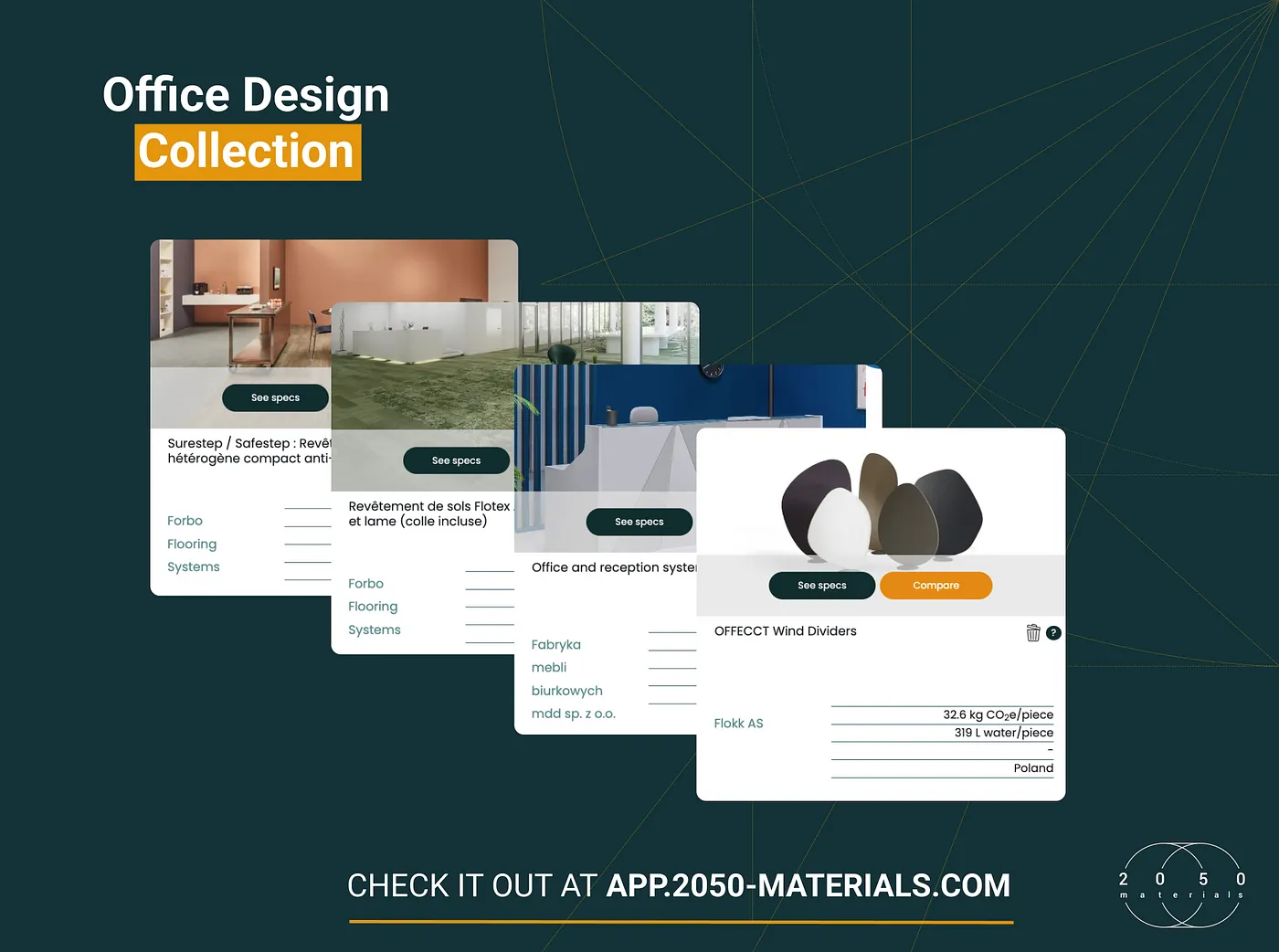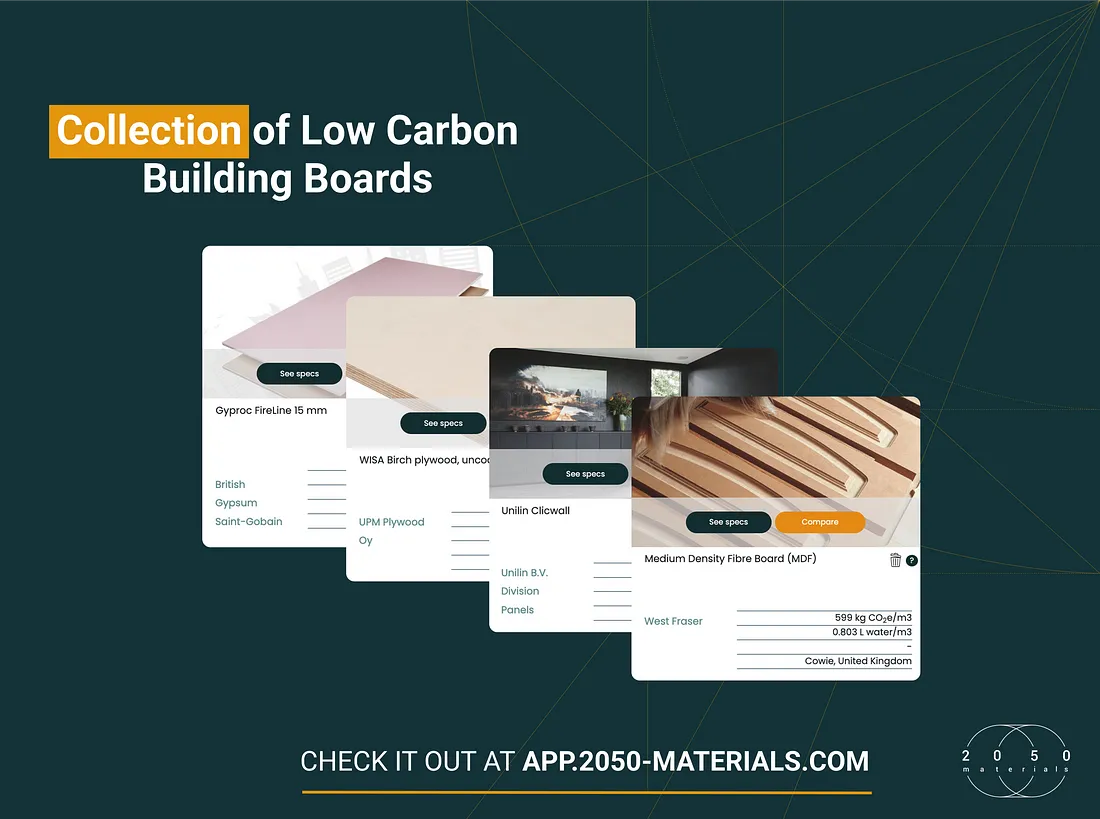9 Progressive Hemp-Based Products for Construction and Insulation

In today’s construction landscape, hemp stands out as a remarkable material with a multitude of sustainable benefits. From natural insulation to modular systems, hemp-based products provide innovative alternatives to traditional building materials.
 This article examines 9 groundbreaking hemp-based products, detailing their sustainability credentials, unique advantages, and specific applications in construction. Each product embodies a forward-thinking approach that aligns with the demand for materials that minimize environmental impact and promote healthy living spaces.
This article examines 9 groundbreaking hemp-based products, detailing their sustainability credentials, unique advantages, and specific applications in construction. Each product embodies a forward-thinking approach that aligns with the demand for materials that minimize environmental impact and promote healthy living spaces.
1. Hempcrete Insulation Blocks — HB400 (360x400x200mm) by The Hemp Block Company Ltd

Product Overview
The Hempcrete HB400 insulation block by The Hemp Block Company Ltd. is designed as a fully natural insulation solution. Made from 100% hemp, it provides thermal, acoustic, and moisture control benefits while remaining breathable and fire-resistant.
Sustainability Performance
The HB400 block is produced with minimal embodied energy, significantly lowering its carbon footprint when compared to conventional insulation materials. Its composition reduces reliance on synthetic materials, contributing to a more sustainable construction industry.
Advantages
- Thermal and Acoustic Control: Designed for high thermal inertia, these blocks help regulate indoor temperatures, reducing heating and cooling demands. Their acoustic properties also make them ideal for noise-sensitive environments.
- Natural Fire and Frost Resistance: The natural hemp-based composition ensures resistance to both fire and frost, contributing to long-lasting structural integrity without the need for chemical treatments.
- Breathable Structure for Moisture Control: The HB400 block’s breathable design supports natural moisture regulation, preventing mold and maintaining healthier indoor air quality.
Use Cases
- Insulating walls in energy-efficient homes and commercial buildings.
- Ideal for intermediate floors and roof spaces needing durable, natural insulation.
- Applicable in solid floor setups where thermal comfort is critical.
2. Hemp Concrete Block — PAL36 by IsoHemp S.A.

Product Overview
The PAL36 hemp concrete block by IsoHemp S.A. is a masonry product crafted from hemp shavings and air lime, molded and dried without heat. This block is ideal for non-structural applications, providing masonry options with sustainable properties.
Sustainability Performance
With an EPD certification, the PAL36 block requires minimal energy input during production, reducing its overall carbon footprint. Additionally, the hemp materials naturally absorb carbon dioxide, further enhancing its environmental profile.
Advantages
- Lightweight for Easier Installation: Its low weight reduces the physical demands of installation, making it more convenient and safer for construction teams.
- Heat-Free Production Process: Unlike traditional concrete, these blocks require no heat during manufacturing, resulting in substantial energy savings.
- Carbon-Sequestering Material: Hemp absorbs significant amounts of CO₂ during its growth, meaning each block effectively locks in carbon, contributing to a lower carbon footprint in construction.
Use Cases
- Ideal for partition walls in sustainable construction projects
- Non-structural walls in green renovations or new builds
- Suited for heritage site restorations where lightweight materials are beneficial
3. Roof System by Natural Building Systems

Product Overview
Natural Building Systems’ Roof System uses demountable, hemp-based cassettes that can be installed at various angles and combined with diverse finishes, enhancing flexibility in architectural designs.
Sustainability Performance
This modular system prioritizes circularity by allowing for easy disassembly and reuse, drastically minimizing construction waste. Hemp’s natural properties further enhance the system’s environmental benefits, supporting sustainable building goals.
Advantages
- Modular and Reusable Design: Built to be easily disassembled and reused, reducing long-term construction waste and supporting sustainable building cycles.
- Customizable for Various Design Needs: The system can accommodate a wide range of external finishes, enhancing aesthetic flexibility without compromising sustainability.
- Enhanced Indoor Air Quality: The breathable hemp material promotes airflow and reduces moisture buildup, contributing to healthier indoor environments.
Use Cases
- Modular roofing systems for commercial green buildings.
- Ideal for energy-efficient homes with customizable roofing needs.
- Perfect for renovations emphasizing low-waste and reusable materials.
Explore Natural Building Systems’ Roof System on 2050 Materials here.
4. Natur-Chanv/Hemp Insulating Panel by Nature Fibres Inc.

Product Overview
Produced by Nature Fibres Inc., the Natur-Chanv insulation panel is a semi-rigid, easily installed panel made from hemp wool. It is suited for insulating walls, ceilings, and floors, providing effective thermal regulation.
Sustainability Performance
Certified with an Environmental Product Declaration, this panel reduces the need for artificial heating and cooling, minimizing energy use. Its natural hemp composition offers end-of-life biodegradability, lessening long-term environmental impact.
Advantages
- Quick and Effortless Installation: Simple insertion between framing sections cuts down on installation time, lowering labor costs and time requirements.
- Superior Thermal Efficiency: Provides effective insulation for reducing energy demands, supporting lower operational costs and environmental impact.
- Biodegradable Composition: Once it reaches the end of its useful life, the panel can naturally decompose, avoiding long-term waste accumulation.
Use Cases
- Wall insulation in both residential and commercial spaces.
- Effective ceiling insulation to retain indoor warmth in colder climates.
- Floor insulation, creating energy-efficient indoor environments.
Explore Natur-Chanv/Hemp Insulating Panel on 2050 Materials here.
5. Thermo Hanf Stuffing Wool by Thermo Hanf

Product Overview
Thermo Hanf’s stuffing wool consists of loose hemp fibers, making it perfect for insulating irregular or hard-to-reach spaces. This pollutant-free insulation product offers high heat and cold protection.
Sustainability Performance
Free from harmful chemicals, Thermo Hanf’s stuffing wool improves indoor air quality. Its high moisture absorption reduces reliance on artificial humidity control systems, contributing to energy conservation.
Advantages
- Adaptable for Complex Spaces: The loose fiber structure allows it to fill any cavity shape, making it highly versatile for non-standard architectural designs.
- Chemical-Free Composition: Unlike synthetic insulation, this wool is pollutant-free, creating healthier indoor environments.
- Moisture-Absorbing Properties: High humidity absorption helps prevent mold and regulates interior air moisture, enhancing durability.
Use Cases
- Filling insulation for timber frames and masonry walls.
- Insulating irregular spaces or hard-to-reach cavities in buildings.
- Suitable for both new builds and historic renovations requiring breathable materials.
6. Ekolution® Hemp Fibre Insulation by Ekolution AB

Product Overview
Ekolution AB’s hemp fiber insulation provides moisture buffering and thermal regulation. This bio-composite product is both non-toxic and durable, suited for a range of sustainable construction applications.
Sustainability Performance
The hemp-based insulation reduces the need for artificial temperature control. Its high thermal inertia and moisture buffering capabilities help in maintaining a stable and energy-efficient indoor environment.
Advantages
- Natural Moisture Buffering: Helps manage indoor humidity levels, reducing the need for additional humidity controls and conserving energy.
- Non-Toxic Materials for Healthy Living: Made without harmful chemicals, Ekolution’s insulation is safe for occupants and installers alike.
- Thermal Inertia for Temperature Stability: Slows temperature changes, maintaining comfortable indoor conditions with reduced heating and cooling.
Use Cases
- Insulating walls and ceilings in residential and commercial properties.
- Effective for humid climates needing natural humidity control.
- Suitable for buildings focused on energy efficiency and occupant health.
7. Hemspan Bio Board by Hemspan Ltd

Product Overview
Hemspan Ltd’s Bio Board is an interior construction board made from hemp shiv and a mineral binder, providing a fully biodegradable and recyclable solution free from formaldehyde.
Sustainability Performance
This product’s formaldehyde-free composition avoids the harmful emissions often found in traditional boards. Its biodegradable nature ensures minimal long-term environmental impact, making it a sustainable choice for interior construction.
Advantages
- Non-Toxic for Better Indoor Quality: Free of formaldehyde, it contributes to healthier air, particularly important in residential and commercial spaces.
- Fully Biodegradable: The board can decompose naturally at the end of its lifecycle, aligning with sustainable waste reduction practices.
- Water Resistance for Versatile Applications: Resistant to moisture, making it suitable for damp areas without compromising durability.
Use Cases
- Interior walls and panels in residential buildings.
- Suitable for kitchens and bathrooms due to its water resistance.
- Ideal for projects emphasizing low toxicity and low carbon materials.
8. IndiTherm Hemp Insulation Flexibatts by IndiNature

Product Overview
IndiNature’s IndiTherm flexibatts are flexible, hemp-based insulation panels, recognized for being carbon-negative and waste-free. These panels are made from UK-grown hemp, offering breathable, humidity-regulating properties.
Sustainability Performance
With a carbon-negative production, IndiTherm flexibatts provide a renewable and breathable insulation option that contributes to indoor air quality and long-term sustainability.
Advantages
- Carbon-Negative and Zero-Waste: Created from hemp that absorbs CO₂, these panels actively contribute to carbon reduction, and their zero-waste production minimizes environmental impact.
- Humidity Regulation for Indoor Comfort: Breathable design supports natural humidity control, which is especially beneficial for occupant health.
- Easy Installation with Friction-Fit Design: Simplifies installation, reducing labor time and enhancing airtightness for energy savings.
Use Cases
- Wall insulation for residential and commercial buildings focused on low-carbon impact.
- Ceiling and floor insulation where humidity control is essential.
- Ideal for energy-efficient buildings designed for occupant well-being.
Explore IndiTherm Hemp Insulation Flexibatts on 2050 Materials here.
9. Hemp Fibre by KOBE-cz s.r.o

Product Overview
KOBE’s Hemp Fibre is a high-performance insulation material made from hemp fibers. Known for their high tensile strength, these hemp fibers serve as a reinforcement in bio-composites, giving the insulation excellent durability and insulating capabilities. The bio-composite design makes it particularly suited for the construction sector, offering an effective and sustainable insulation solution.
Sustainability Performance
Hemp, as a rapidly renewable resource, binds substantial amounts of CO₂ during its growth, making KOBE Hemp Fibre Insulation a great choice for designers and architects looking to build sustainably. Compared to other biomass sources, hemp grows quickly, capturing CO₂ efficiently, which helps reduce the overall carbon footprint of buildings. The product’s bio-composite nature not only provides thermal efficiency but also contributes positively to environmental sustainability by utilizing natural, renewable resources.
Advantages
- High Tensile Strength: Hemp fibers are robust and durable, making this insulation ideal for long-term use in construction.
- Effective Insulation: Provides excellent thermal insulation, enhancing energy efficiency in buildings.
- Carbon Sequestration: Industrial hemp sequesters large amounts of CO₂, helping to offset the carbon emissions of the building sector.
- Renewable and Sustainable: As a rapidly renewable resource, hemp minimizes environmental impact compared to conventional insulation materials.
Use Cases
- Perfect for residential and commercial buildings seeking insulation solutions with sustainable properties.
- Ideal for green building projects aiming to reduce their carbon footprint by incorporating bio-based materials.
- Suitable for passive houses and energy-efficient buildings where thermal performance is a priority.
2050 Materials Resources
Our free-to-use 2050 Materials library offers a wide range of innovative, low-impact, and healthy materials in the market worldwide.
Get your high-quality printable “Illustrated Guide to Insulation Materials” designed by the 2050 Materials team for architects and designers aiming to navigate the sustainable building landscape.
Conclusion
These 9 hemp-based construction materials exemplify the next generation of sustainable building innovations. Offering a range of thermal, acoustic, and moisture-regulating properties, these products stand out not only for their environmental contributions but also for their practical benefits in building design. Incorporating these hemp-based materials into construction practices is a step forward in creating buildings that prioritize both resource efficiency and human health.
Related articles

Climate-Resilient Materials for the Built Environment: A Data-Centred Prime
As climate volatility intensifies, resilience metrics are fast becoming as critical as carbon data in material selection. This article outlines why adaptation is now a design imperative, how materials can be evaluated through a systems lens, and what KPIs project teams should demand. From self-healing concrete to fire-rated façades, we present a structured taxonomy of resilient materials, explain how to embed this intelligence into digital design workflows, and propose next steps for specification, benchmarking, and procurement.
Read more
The Most Interesting Low Carbon Products in Office Design
In this article and collection, we highlight 11 outstanding products that contribute to a lower carbon footprint in office design.
Read more
Top Low Carbon Building Boards: Performance, Benefits, and Use Cases
The building boards highlighted in this article and collection showcase low-carbon innovation in modern construction.
Read more